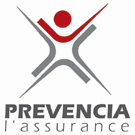There are several good reasons for keeping your flues clean. Perhaps the most obvious one is that your home insurance may not cover you in case of a fire if you can’t provide proof that you have had it swept within the last 12 months.
[For Generali policy-holders, at February 2015, you are required to have your chimney swept before each winter. Your own policy will specify either that you need to have this done professionally or that you may do it yourself. In either case, should you need to make a claim arising from a chimney fire, the loss adjuster (expert) will ask for proof that you did this (or had it done) and will consequently determine whether you discharged your obligations properly. If it is found that you did not, your reimbursement may be liable to a deduction of 2 500 euros. As always, read the small print of your particular policy.]
[Some of our longer-standing clients with a Generali Domicile policy may be entitled to sweep their own chimneys – or have it done by a professional. (Either way, mechanical sweeping is required. The use of a bouchon-type product on its own is never considered to be sufficient.) Newer clients with a Generali Habitation policy won’t have that option and must use a professional. Make sure you know which requirement applies to you.]
However, each insurance company has its own rules, so you should read the general terms, the “Incendie” (fire) chapter, and see if ramonage (chimney sweeping) is mentioned. It can also appear in the chapter “Vos devoirs” (Your duties).
You could be personally liable if anyone is hurt due to a fire caused by a dirty chimney. But bear in mind that when a fire does break out, the police or gendarmes investigating will try to locate the origin and if their report makes it clear that a chimney was not the cause, this can influence the insurer’s decision.
As far as the law is concerned, the duties of a French mayor include making sure that all chimneys, ovens, furnaces of houses and factories in his commune be cleaned at least once a year*. Boilers must also be carefully maintained. Whether you are the owner or the tenant, you are responsible for ensuring that the hot water and central-heating boiler you use are checked annually by a heating engineer (chauffagiste).
When choosing a sweep (ramoneur) beware of hawkers – make sure the work is done by a professional who is covered by a liability insurance (responsabilité civile), in case of any flaws in the work. The sweep should give you a statement (attestation) that the chimney has been swept along its entire length.
When your stove or heating system was fitted, the equipment was adjusted to the draught of your chimney. If your chimney gets filled up with soot, the quality of draught changes but the parameters of your installation don’t. This means you will use more fuel and it will cost you more to heat your house to the same temperature.
Soot can catch alight and is a common cause of chimney fires. The quality of the wood you burn (oak is very ‘clean’) and its dryness both affect how much soot builds up.
There is also a real danger of carbon monoxide poisoning when the gas stays in the house instead of going up and out through the chimney. Some 300 people die like this each year in France, and 4,000 suffer from respiratory problems after inhaling carbon monoxide, which is all the more dangerous as you cannot smell it.
Instead of having a sweep, you may be tempted to buy a chemical brick to burn in the fireplace which is supposed to clean your chimney. However, we don’t recommend this product as it corrodes the inside of the pipe and could do more harm than good. So for now, there is no good alternative to old-fashioned cleaning by scraping the inside of the flue with a hard brush adapted to the width.
Who pays? If you are the owner of a house or flat and you lease it out, it is up to the tenant to pay to have the chimney swept and boiler cleaned each year.
If you are an owner or tenant in a block of flats, these costs are included in the charges you pay to the syndic de copropriété (property manager).
Smoke detectors compulsory
In France, since a change in the law in February 2009, at least one approved smoke detector (détecteurs avertisseurs autonomes de fumée – DAAF) is now compulsory in every home. It is the responsibility of the occupant (tenant or owner) to ensure that the equipment is installed within three years of the new law. *Article L2213-26 in the Code général des collectivités, créé par Loi 96-142 1996-02-21 jorf 24 février 1996. This article appeared in the September 10 – 16, 2010, edition of French Week.
February 2015 update
For more up-to-date information on smoke detectors please see our blog article on smoke detectors.
The information provided here is for general guidance. The exact details of your policy will define your legal and contractual obligations. What is written there will take precedence over what is written here.
Ces informations sont données à titre indicatif. Pour connaître précisément vos obligations légales ou contractuelles en relation avec votre contrat d’assurance, veuillez vous référer aux conditions générales et particulières de votre contrat.
